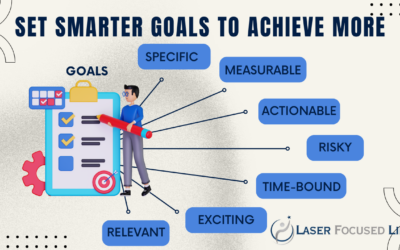As we approach the year’s end, it’s natural to take stock of the goals we set for ourselves back in January. If you’re feeling a pang of disappointment because you didn’t achieve everything on your list, you’re not alone. Many people find themselves in this exact position, wondering what went wrong and what comes next.
But let me tell you something important: Not achieving all your goals does not mean the year was a failure. In fact, it’s an opportunity—a chance to reflect, recalibrate, and refocus. As a coach, I’m here to help you shift your perspective and create a roadmap for turning unmet goals into future triumphs.
Reframing Failure: The Lessons in Missed Goals
The first thing we need to do is redefine what “failure” means. Society often teaches us to view unmet goals as shortcomings, but I challenge you to think of them as stepping stones. Each goal you pursued, whether you achieved it or not, brought you closer to understanding your strengths, challenges, and priorities.
Here are a few key questions to guide your reflection:
- What progress did I make toward my goals, even if I didn’t fully achieve them?
- What external factors might have influenced my progress?
- What did I learn about myself in the process?
For example, let’s say you set a goal to lose 20 pounds this year but only lost 10. Instead of focusing on the 10 pounds you didn’t lose, celebrate the fact that you created healthier habits, learned what works for your body, and gained insights into the obstacles you need to overcome. That’s progress worth celebrating.
Celebrate Your Wins—Big and Small
As humans, we have a tendency to fixate on what we didn’t do instead of celebrating what we did. But every small victory counts. Take a moment to write down all the things you accomplished this year. These don’t have to be related to your original goals—perhaps you strengthened a relationship, took a leap in your career, or simply survived a particularly challenging time.
Gratitude is a powerful motivator. When you focus on what you’ve achieved, you build confidence and resilience—two qualities that will help you tackle your goals in the future.
Activity: Create a “Wins Journal” and jot down three accomplishments you’re proud of for each month of the year. When you see these small wins add up, it’ll reframe your perspective on what you’ve achieved.
Analyze the Missed Goals Without Judgment
Once you’ve celebrated your wins, it’s time to take a closer look at the goals you didn’t achieve. The key here is to analyze without judgment. This isn’t about berating yourself for what didn’t happen; it’s about understanding why it didn’t happen so you can adjust your approach moving forward.
Ask yourself:
- Were my goals realistic given my circumstances?
- Did I have the right systems in place to support my progress?
- Were these goals truly aligned with my values and priorities, or were they based on external expectations?
Sometimes, goals go unmet because they weren’t the right goals in the first place. For example, if you set a goal to run a marathon but realized halfway through the year that you actually prefer strength training, it’s not a failure—it’s clarity. Now you know where to direct your energy moving forward.
Shift from “Yearly Goals” to “Rolling Goals”
One common pitfall of goal setting is tying success to an arbitrary deadline, like December 31st. Life doesn’t operate on a calendar year; progress is fluid. Instead of thinking of goals as something you need to achieve within 12 months, consider adopting a rolling-goal mindset.
Rolling goals allow you to continuously work toward what matters most, adjusting as needed without the pressure of a fixed end date. For example:
- If you didn’t save $5,000 this year, roll that goal into next year with a revised strategy.
- If you didn’t write the book you planned, break it into smaller milestones and keep going.
This approach gives you permission to keep moving forward, no matter where you are in your journey.
Set SMARTER Goals for the Future
As you plan for the year ahead, use the SMARTER framework to set goals that are:
- Specific: Clearly define what you want to achieve.
- Measurable: Establish criteria to track your progress.
- Actionable: Make sure your goal has clear steps and action items.
- Risky: Your goals should be set firmly in your “discomfort zone.”
- Time-Bound: Set a target date for completion, but be flexible if life happens.
- Exciting: Exciting & meaningful goals help motivate you to stay focused.
- Relevant: Align your goals with your values and long-term vision.
For instance, instead of saying, “I want to get in shape next year,” say, “I want to complete a 5K race by June by following a couch-to-5K program.” For more on SMARTER goals read the blog post titled “Set SMARTER Goals to Achieve More.”
Create a System, Not Just Goals
One of the biggest reasons people don’t achieve their goals is that they focus solely on the outcome rather than the process. Goals are important, but systems are what make them achievable.
If your goal is to read 12 books next year, your system might be:
- Setting aside 30 minutes every morning for reading.
- Joining a book club for accountability.
- Tracking your progress with a reading journal or app.
When you focus on the system, the goal becomes a natural byproduct.
Leverage Your Support Network
No one achieves great things alone. Share your goals with trusted friends, family, or a coach who can offer encouragement, accountability, and perspective.
If you’ve struggled with self-discipline or motivation this year, consider finding an accountability partner or joining a community of like-minded individuals. Surrounding yourself with people who share your values and ambitions can be a game-changer.
End-of-Year Action Plan: What to Do Now
Here’s a simple three-step plan to close out the year with a sense of accomplishment and set the stage for the year ahead:
- Reflect and Celebrate: Write down all the things you accomplished this year, no matter how small.
- Evaluate and Learn: Review your unmet goals and identify the lessons they taught you.
- Plan and Strategize: Set rolling goals for the next year, focusing on systems and SMART criteria.
Final Thoughts: Your Journey Is Your Own
Remember, personal growth isn’t a straight line—it’s a journey filled with twists, turns, and unexpected detours. The fact that you’re reflecting on your goals and looking for ways to improve means you’re already ahead of the game.
As you step into the new year, focus on progress, not perfection. Celebrate your wins, learn from your setbacks, and keep moving forward. Your goals are still within reach—sometimes they just take a little longer than expected.





0 Comments